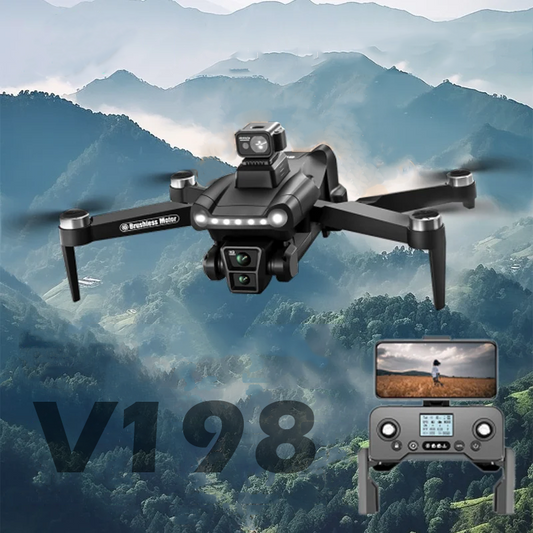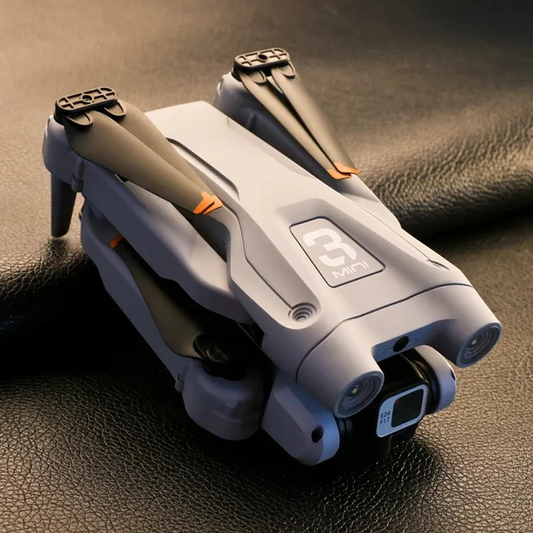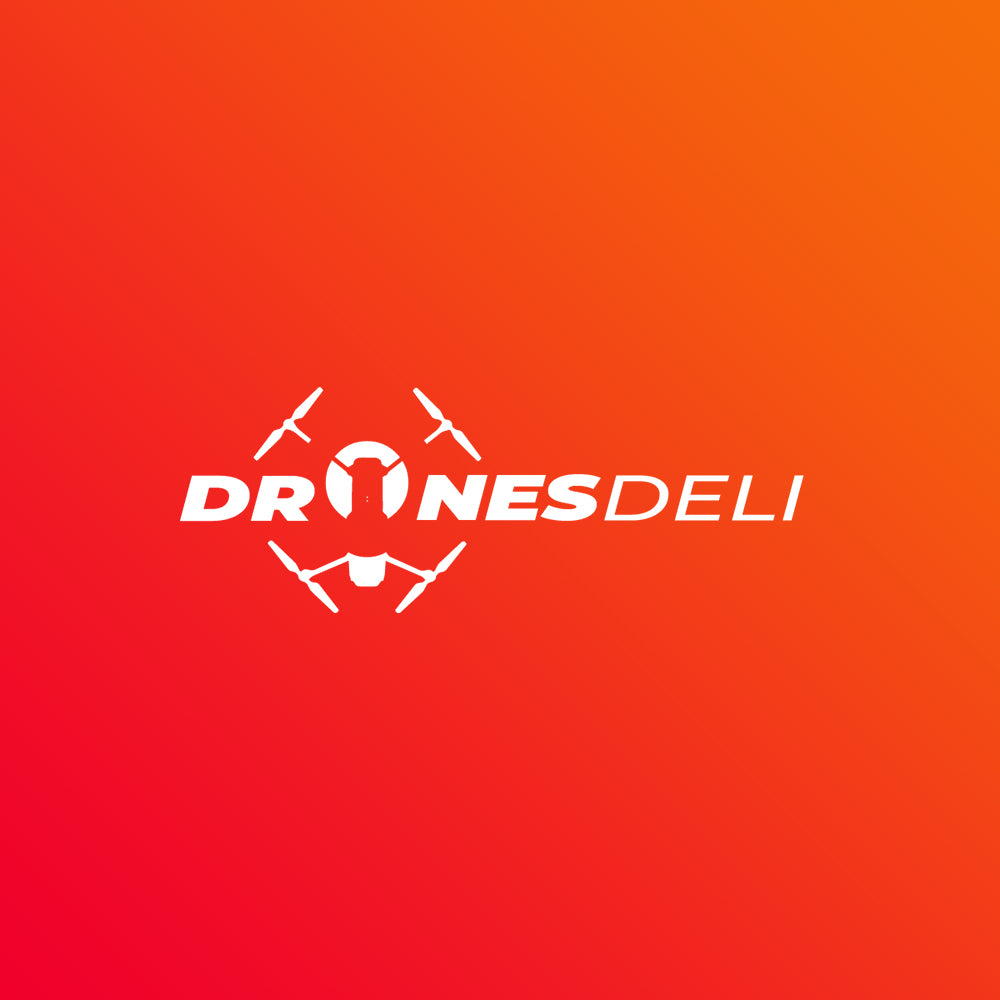Drones with AI Technology: The Future of Flight

The integration of artificial intelligence (AI) in drone technology is revolutionizing the potential of aerial devices. AI-powered drones are reshaping industries by introducing unprecedented levels of autonomy, precision, and intelligence in navigation and data processing. Unlike traditional drones, which require constant manual control, AI drones utilize advanced algorithms, machine learning, and data analysis to make real-time decisions, allowing for smoother and more efficient operations. This article explores how drones with AI technology are pioneering the future of flight, opening up new possibilities across fields such as logistics, surveillance, and environmental monitoring.
1. The Role of AI in Enhancing Drone Capabilities
AI technology has unlocked numerous capabilities in drones that were previously unimaginable. Autonomous navigation, powered by sophisticated algorithms and sensors, allows drones to independently assess and adapt to their surroundings. This technology enables AI drones to perform obstacle detection, route optimization, and collision avoidance, ensuring safe and efficient navigation even in complex environments. For instance, AI-powered drones used in rescue operations can quickly map and analyze areas for potential hazards, significantly improving response times.
Machine learning also plays a key role, enabling drones to learn from previous flights and adapt to new situations. By processing large volumes of data collected during each flight, drones with machine learning capabilities can recognize patterns and improve their performance over time. These advancements mean that the longer an AI drone operates, the more refined and effective it becomes, resulting in faster, more accurate, and safer flights.
2. Autonomous Drones with AI Technology and Real-World Applications

The autonomy provided by AI technology has led to the development of drones that can operate independently, making them valuable across a range of industries. In agriculture, for example, autonomous drones equipped with AI can monitor crop health, detect pest infestations, and optimize irrigation based on real-time data analysis. This allows farmers to manage large areas of land more efficiently, reducing labor costs and improving crop yields.
In logistics, autonomous Drones with AI Technology are paving the way for faster and more flexible delivery services. Companies are experimenting with AI-powered delivery drones to transport goods directly to customers, bypassing traditional infrastructure and reducing delivery times. Additionally, in the construction industry, drones with AI can autonomously survey construction sites, assess progress, and detect structural issues, helping project managers maintain timelines and improve safety.
3. AI-Powered Surveillance and Security Drones
One of the most impactful applications of AI in drones is in the area of surveillance and security. AI drones equipped with facial recognition, motion detection, and behavioral analysis can effectively monitor large areas without human intervention. This is particularly useful for border control, crowd management, and critical infrastructure security. By using real-time data processing, these drones can detect potential threats and alert authorities immediately, enhancing safety and response times.
AI surveillance drones are also being used in environmental protection efforts. For example, drones with AI technology can monitor wildlife, detect illegal activities like poaching, and track environmental changes in real time. By analyzing vast amounts of environmental data, AI drones contribute to conservation efforts by providing insights that would be challenging to obtain manually.
4. Smart Data Analysis for Advanced Insights

Drones with AI technology are not only capable of collecting data but are also proficient in analyzing it on the fly. This is a game-changer for industries that rely heavily on data-driven insights. In agriculture, AI drones can assess crop health by analyzing multispectral images, allowing farmers to make informed decisions about irrigation, fertilization, and pest control. These smart drones can detect signs of plant stress early, enabling preventative measures that can save crops and reduce financial loss.
In real estate, AI drones offer advanced data analysis to help professionals create 3D maps, conduct thermal imaging, and capture high-resolution images of properties. The data gathered by AI drones allows for accurate property assessments, even in hard-to-reach areas, giving buyers and sellers a more comprehensive understanding of a property’s condition and value.
5. Enhancing Drone Safety Through AI
Safety is paramount when it comes to drone operations, and AI technology has significantly contributed to making drones safer and more reliable. AI-enabled obstacle avoidance systems use real-time data from drone sensors to detect and avoid potential hazards, reducing the risk of accidents. For example, drones used in powerline inspections or disaster zones can navigate around obstacles without human intervention, making these operations safer and more efficient.
Moreover, Drones with AI Technology are equipped with emergency protocols. If a drone detects a malfunction, it can return to its launch point automatically or land safely in a designated area. These smart safety features, along with predictive maintenance alerts provided by AI, help extend the lifespan of the drone and minimize operational risks, making AI drones a more viable option for industries with stringent safety requirements.
6. Challenges and Ethical Considerations of AI Drones

Despite their many advantages, AI-powered drones also come with challenges and ethical considerations. Privacy is a primary concern, as drones equipped with facial recognition and data collection capabilities raise questions about surveillance and data security. It’s crucial to establish clear regulations to prevent misuse of these technologies and protect individuals’ privacy rights.
Technical limitations are another challenge, as AI models require continuous improvement to function reliably in complex, real-world environments. Training these models requires large amounts of data, which can be expensive and time-consuming to collect. Additionally, there’s the issue of accountability in the event of a malfunction or accident. Ensuring ethical use and addressing these challenges will be critical for the widespread adoption of AI drones in the future.
7. The Future of AI Drones: Trends and Innovations
The potential for drones with AI technology continues to grow as innovation accelerates. Future advancements may include drones with even greater autonomy, capable of self-charging and performing complex tasks without human input. The integration of AI and machine learning will likely enable drones to interact with each other, creating synchronized fleets that can work collaboratively on large-scale projects, such as search and rescue operations or agricultural management.
Another promising trend is the development of AI drones for personal use. With improvements in affordability and ease of use, AI drones are expected to become accessible to hobbyists, enhancing recreational experiences with smarter navigation and improved camera technology. As AI technology becomes more advanced, we can expect to see drones that learn and adapt in real time, further expanding the possibilities for personal and professional use.
Drones with AI Technology
AI technology is undeniably transforming the drone industry, bringing new levels of autonomy, intelligence, and versatility to aerial devices. From agriculture and logistics to surveillance and real estate, drones with AI are redefining how we approach tasks that require precision, speed, and smart data analysis. However, as these innovations continue to evolve, it will be essential to address ethical and regulatory concerns to ensure responsible usage. As we look toward the future, it’s clear that AI drones are poised to play a central role in the evolution of flight, opening up endless possibilities for both industry and society.
At our online drone store, you'll find cutting-edge technology and expert advice to elevate your aerial photography and farming efficiency. Shop with us for the best in drone innovation.









